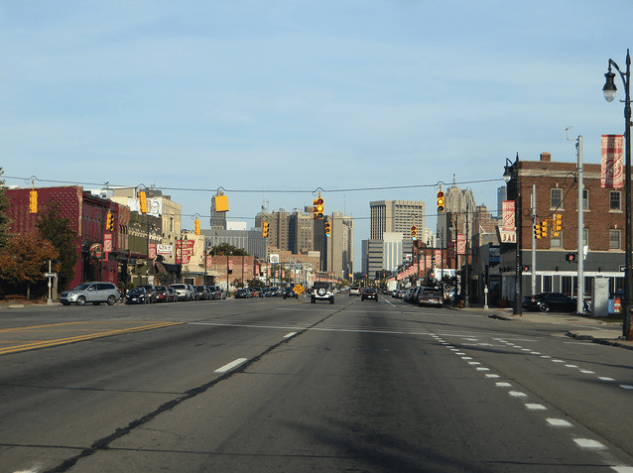The environmental racism that's part of our transportation system doesn't announce itself out loud. It doesn't march down the street carrying tiki torches.
But if you look at the outcomes of public policy over the years, the result has been systemic disadvantages for predominantly black and brown neighborhoods, be it in the form of higher pedestrian fatality fates or worse access to jobs.
Air quality expert Tim Kovach recently came across new research showing how racial and class disparities continue to linger in exposure to air pollution from cars and trucks.
Racial discrimination in housing and transportation policy going back generations led to elevated rates of vehicle pollution-related health problems in communities of color, which tend to be closer to big roads and highways. While recent government efforts to clean up tailpipe emissions have lowered air pollution across the board, racial disparities persist in exposure to fine particles from motor vehicles, Kovach reports:
In a study published last month in Environmental Health Perspectives, three researchers from the Universities of Minnesota and Washington examined disparities in exposure to transportation-related air pollution (TRAP) by race and socioeconomic status from 2000 to 2010.
As the authors note, racial minorities and low-income households are significantly more likely to live near major roads, which exposes them to nearly three times the level of TRAP. While efforts to clean up vehicles helped reduce nitrogen dioxide (NO2) levels by 37% from 2000-2010 in the US, we do not know how this affected disparities in exposure.
In order to explore this question, the authors analyzed the relationship between TRAP exposure and demographic data at the Census block level in 2000 and 2010.
In 2000, the block groups with the highest share of nonwhite residents had NO2 concentrations that were 13.2 parts per billion (ppb) higher than the block groups with the lowest nonwhite share. By 2010, this difference had fallen to 8.9 ppb, suggesting that the greatest reductions occurred in those communities with the highest level of exposure.
But the absolute reduction disappeared when the authors considered relative changes. In 2000, the block groups with the greatest share of nonwhite residents had 2.5 times higher levels of NO2 than the whitest block groups; by 2010, this disparity had actually increased to 2.7-fold.
The authors concluded that “eliminating disparities may require additional policies and interventions that target the underlying causes of environmental injustice.” This is not how we typically approach environmental issues, particularly air pollution.
With Trump in the White House, federal action to address these disparities isn't in the cards any time soon. But motivated state, regional, and local agencies should be taking action to eliminate them.
More recommended reading today: ATLUrbanist says a new development in central Atlanta scales down the parking but still has too much. And Modern Cities looks at Miami's Brickell City Centre as a more walkable, urban model for malls.






